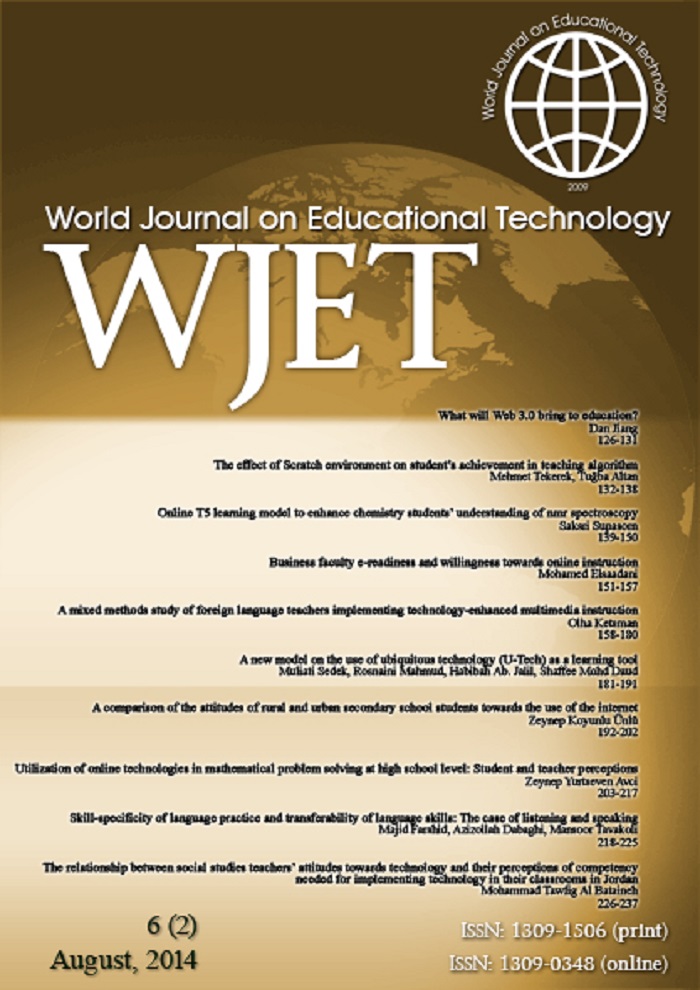Skill-specificity of language practice and transferability of language skills: The case of listening and speaking
Skill-specificity of language practice and transferability of language skills: The case of listening and speaking
Author(s): Majid Farshid, Azizollah Dabaghi, Mansoor TavakoliSubject(s): Education, Foreign languages learning
Published by: Birlesik Dunya Yenilik Arastirma ve Yayincilik Merkezi
Keywords: input-based instruction; listening skills; speaking skill; skill-specificity of language practice;
Summary/Abstract: The study of skill acquisition is of great importance in cognitive psychology. One aspect of skill acquisition research is whether practice in SLA is skill-specific or not. To date, research done has not led to either unanimous rejection or acceptance of the theory. This article is an attempt to examine this question in an EFL context where L2 learners have limited or no access to target language data outside the classroom. More specifically, it tries to see whether listening and speaking in an EFL context necessitate their own specific practice or not. Based on a post-test only design, 16 male, beginner Iranian EFL learners received input-based instruction for three months. When the instruction was over, both listening and speaking performances of the subjects were assessed. The result showed that the subjects had significantly improved their listening ability while their speaking ability had little or no improvement, indicating that different language skills in EFL contexts need specific practice. The findings not only confirm the skill-specificity of language practice, but also rejects VanPatten’s seminal claim that comprehension practice is enough to bring about development, not only in comprehension but also in production.
Journal: World Journal on Educational Technology: Current Issues
- Issue Year: 6/2014
- Issue No: 2
- Page Range: 218-225
- Page Count: 8
- Language: English

